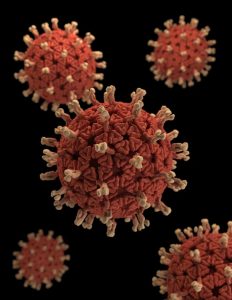Vitamin C has several important functions from protecting cells from damage to maintaining healthy skin, blood vessels, bones, and cartilage.
The role of immunity in pandemic times is more than ever before. Vitamin C also known as ascorbic acid is an essential micronutrient and is important to boost immunity and prevent several infections and even chronic diseases. The nutrient can also benefit people with heart diseases or blood pressure and can protect end-organ damage and improve vascular endothelial function, which helps regulate blood clotting, as per studies.
Also Read|Study: 76% of heart attack patients who have exhaustion survive 1 year
Vitamin C has several important functions from protecting cells from damage to maintaining healthy skin, blood vessels, bones, and cartilage. It also helps in the healing of wounds.
“Vitamin C is an essential nutrient to boost immunity. It is observed that patients with common NCDs, like diabetes and hypertension, may require more vitamin C than others, owing to the high oxidative stress seen in these patients. Individuals can boost their regular nutritional intake through vitamin C supplementation, in addition to a rich, balanced diet, comprising citrus foods and tomatoes,” says Dr Shashank Joshi, Endocrinologist, Lilavati Hospital, Mumbai.
Also Read|Every country failed to meet WHO’s air quality standards in 2021: Survey
How much vitamin C do we need; what happens when you eat too much of it
Adults aged 19 to 64 need 40 mg of vitamin C a day, according to NHS (National Health Service, UK). Since it cannot be stored in the body, you need it in your diet every day. However, one should not take excessive vitamin C to avoid side effects like stomachache, diarrhoea, or flatulence.
How to know if you have a vitamin C deficiency
An estimated 74% of adults in North India and 46% of adults in North India and South India are deficient in this essential vitamin. People who suffer from noncommunicable diseases are more deficient in vitamin C than others and as a result, they suffer from low immunity levels.
Dr Ashok Shah, Consulting Physician, Aarav Clinic, Surat, notes that “typical indications of vitamin C deficiency include bleeding gums, muscular and joint problems, anaemia, and poor wound healing.”
Dr Shah believes that a vitamin C-rich diet combined with vitamin C tablets can help improve levels and sustain good health.
In older adults, vitamin C insufficiency is prevalent. Deficiency can also be caused by pollution or contaminants, as well as heavy tobacco use.
Also Read|Bihar Diwas 2022: Wishes, quotes, and greetings
Lifestyle changes that can improve Vitamin C levels in the body
A rich, balanced diet, comprising citrus foods and tomatoes is essential for regular nutritional intake of vitamin C.
“Vitamin C is an important component for improving immunity. Vitamin C must be consumed regularly through a well-balanced diet that includes citrus fruits and tomatoes. Increasing micronutrient consumption with vitamin C supplementation, in addition to proper nutrition and diet, can improve health outcomes and promote immunity “Dr D.K. Srivasatav, a consulting physician in Patna, agrees.
Vitamin C sources to include in one’s summer diet
“Oranges are well-known for being a good source of vitamin C. Apart from that, some vitamin C-rich foods include kiwis, strawberries, broccoli, tomatoes, cauliflower, and red peppers “Dr Parag Shah, an endocrinologist at the Gujarat Endocrine Centre in Ahmedabad, agrees.






